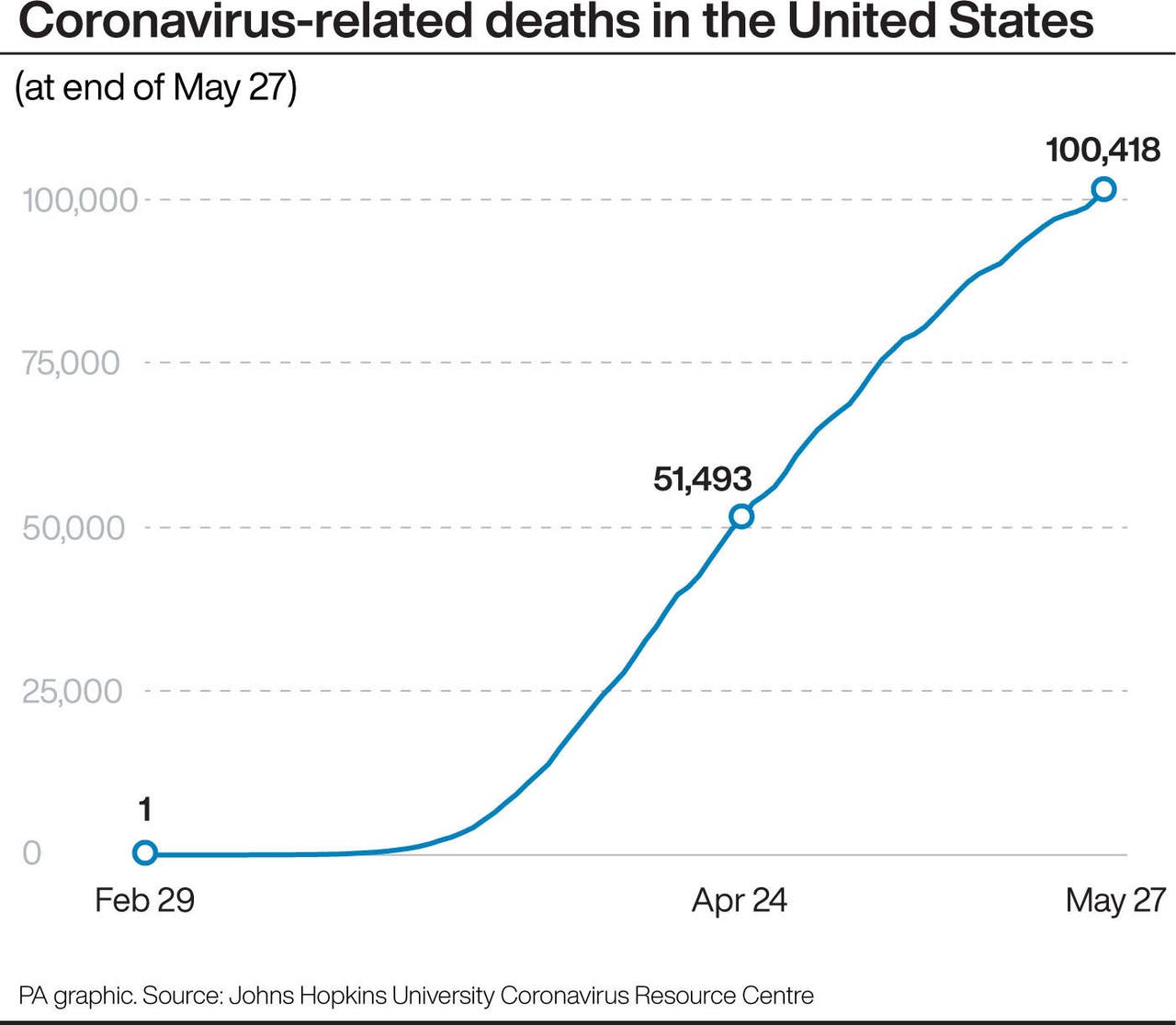Rising US job losses stoke fears of lasting economic damage amid pandemic
The numbers are extraordinarily high by historical standards, economists have warned.
/cloudfront-us-east-1.images.arcpublishing.com/shropshirestar.mna/DK4GIPU3OZH5VGI3AXE4K6AQQU.jpg)
The coronavirus crisis put at least 2.1 million Americans out of work last week, despite the gradual reopening of businesses around the country.
The latest jobs figures have stoked fears that the pandemic is causing deep and potentially long-lasting damage to the US economy.
Despite a few glimmers of hope, the latest economic news from around the globe was similarly grim, as some of the world’s most populous countries reported rising infections and deaths. The confirmed US death toll has surpassed 100,000, the highest in the world.

The latest job loss figures from the US labour department brings the running total of Americans who have filed for unemployment benefits since the coronavirus shutdowns took hold in mid-March to 41 million.
There were some encouraging signs. The overall number of Americans currently drawing jobless benefits dropped for the first time since the crisis began, from 25 million to 21 million.
And first-time applications for unemployment benefits have fallen for eight straight weeks, as states gradually let shops, restaurants and other businesses reopen and the car industry starts up factories again.
However, economists have warned that the number of US workers filing for unemployment benefits is still extraordinarily high by historical standards, suggesting businesses are failing or permanently downsizing, not just laying off people until the crisis passes.
“That is the kind of economic destruction you cannot quickly put back in the bottle,” said Adam Ozimek, chief economist at Upwork.
The US unemployment rate was 14.7% in April, a level not seen since the Depression, and many economists expect it will be near 20% in May.
Airlines and aircraft manufacturers are struggling after air travel plummeted early in the outbreak. Boeing is cutting more than 12,000 US jobs through lay-offs and buy-outs, many expected to be in the Seattle area.
European budget airline easyJet said it will cut up to a third of its 15,000 employees. American Airlines plans to eliminate about 5,100 jobs.
Amtrak has announced it will lay off about 20% of its 18,000 workers amid a collapse in train use.

A number of European countries have strong safety-net programmes which are underwriting the wages of millions of workers and keeping them on the payroll instead of adding them to the ranks of the unemployed. However, the economic damage is mounting there, too.
Nissan is rolling back production in Spain in a move the government said could lead to 3,000 direct job cuts and thousands more losses at the car maker’s suppliers.
And French unemployment claims jumped 22% in April, with 843,000 more people seeking work.
Elsewhere, India saw another record daily jump in coronavirus cases. Russia reported a steady increase in its caseload, even as Moscow and provinces across the vast country moved to ease restrictions in sync with the Kremlin’s political agenda.
South Korea has reported dozens of new cases, all in the densely populated Seoul metro area, as officials scramble to stem transmissions linked to a massive e-commerce warehouse and avoid losing some of the hard-won gains that made it a model for the rest of the world.
Worldwide, the virus has infected more than 5.8 million people and killed about 360,000, with the US having the most confirmed cases and deaths, according to a tally by Johns Hopkins University.
Europe has recorded about 170,000 deaths.
The true dimensions of the disaster are widely believed to be significantly greater, with experts saying many victims died without ever being tested.